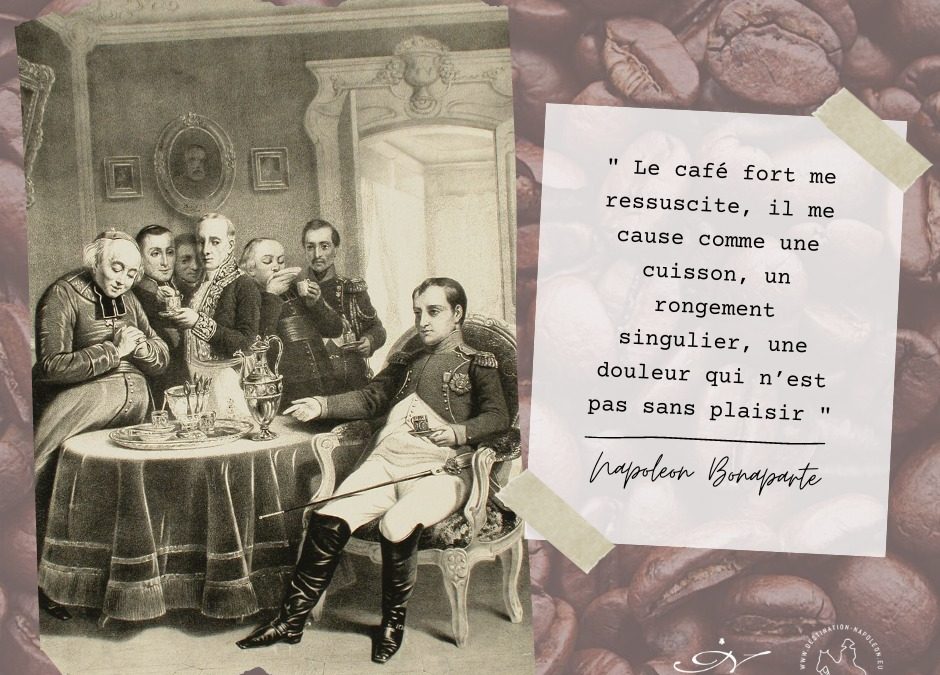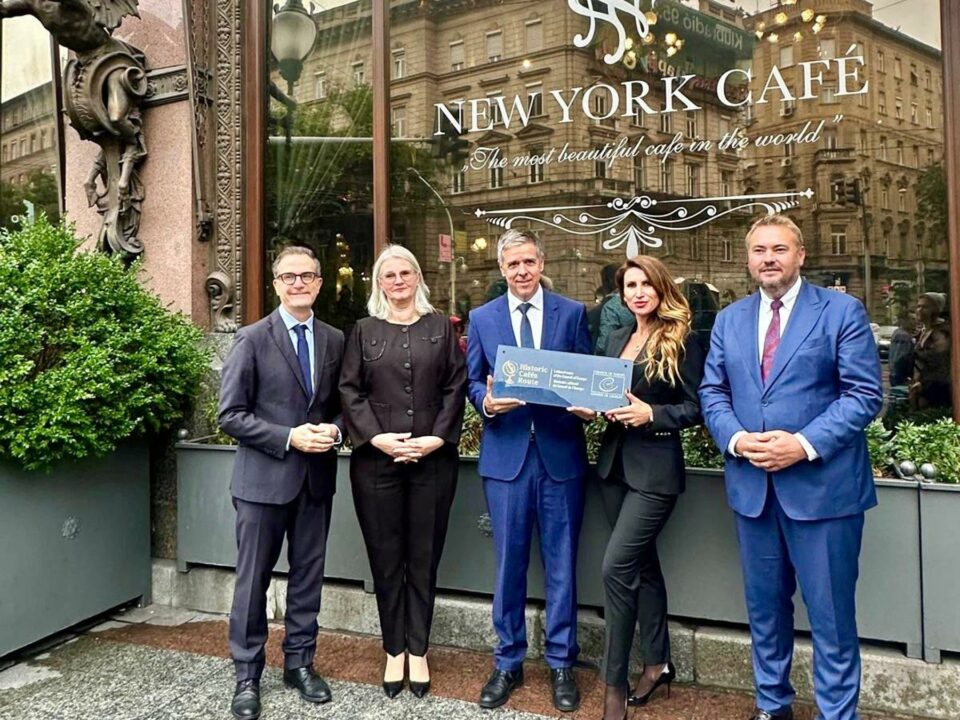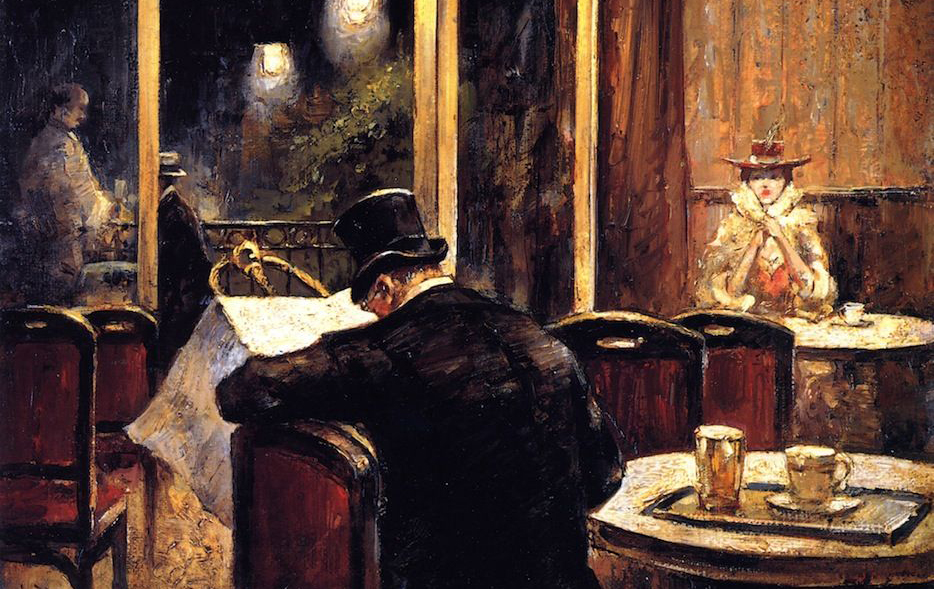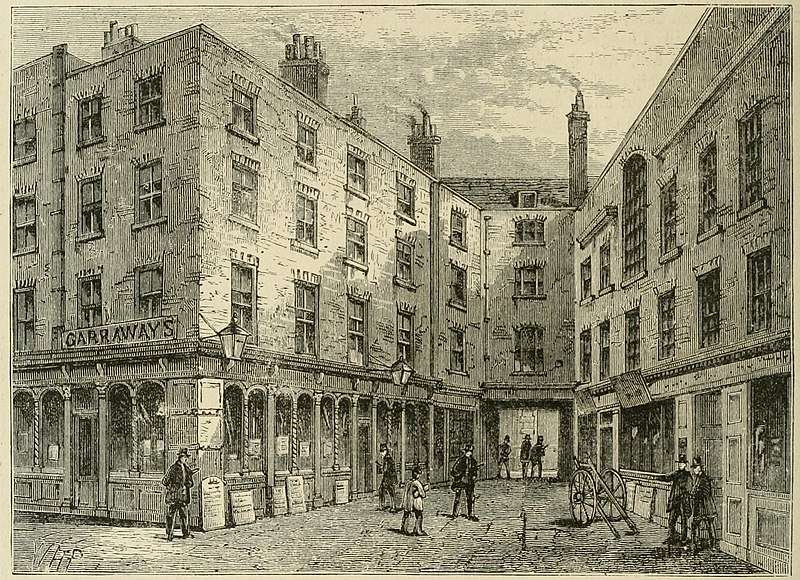Napoleon loved coffee!

How Historic Cafés Route and Destination Napoleon meet? Well, history says that Napoleon Bonaparte was a huge coffee admired. And this is certainly a reason for the two certified by the Council of Europe Routes to begin a close collaboration!
Napoleon Bonaparte loved coffee because, as he used to say, it brought him joy and sweetness. History says that Napoleon Bonaparte often read late into the night, sometimes early in the morning. Therefore, Napoleon’s favorite drink was coffee. Initially, he drank 2 cups of coffee in the morning and after dinner. Over time, Napoleon’s love for coffee grew and he drank coffee whenever he could. Napoleon Bonaparte believed that drinking coffee can lift the spirit, enhance concentration, intelligence, creativity, and can invigorate the physical body.
Over time, however, his love for coffee increased: “[His] buoyancy of mind and energies, intellectual and physical, were never surpassed by those of any man. He abstained from the use of wines and spirituous liquors, but drank Coffee at all hours of the day, to revive his spirits and invigorate his body.” [1]
Napoleon’s coffee obsession continued even after he was ordered into exile. At Elba, after dinner, Napoleon usually played a game of chess and then coffee was brought to him before he took his nightly stroll on the ship’s deck. He also drank coffee on the island of St. Helena. The aromatic beverage first arrived there in 1733 after being brought there from Yemen. Despite the coffee plants being neglected, they flourished, and no one really thought about St. Helena’s coffee until Napoleon popularized it in Paris by declaring, “The only good thing to come out of St Helena is the coffee.” [2]
When Napoleon was residing at Longwood House, Sir Hudson Lowe, who was Governor of the island sent a case of coffee to Napoleon as a gift. Charles Tristan, better known as the Marquis Montholon, thought Napoleon would not accept the gift and was astonished when the deposed Emperor ordered the case to be carried to the pantry stating, “Good coffee is a precious thing in this horrible place.”[6] The cook was also shocked Napoleon wanted to keep it, as he thought the coffee might be poisoned, but Montholon drank it and reported that “the coffee was excellent.” [3]
Napoleon’s coffee obsession was probably why he once said, “Strong coffee, and plenty, awakens me. It gives me warmth, an unusual force, a pain that is not without pleasure. I would rather suffer than be senseless.”[4] His desire for coffee remained strong even while he was dying. François Carlo Antommarchi, who was Napoleon’s physician from 1818 to his death in 1821, initially allowed him a few sips but eventually told everyone Napoleon was forbidden from drinking coffee. General Henri Bertrand noted that the Emperor asked twenty times for a spoonful of coffee, but the valet was ordered by the doctor to refuse him any because it might irritate his stomach:
“Tears came to my eyes, seeing this formidable man, who had commanded with such authority, in a manner so absolute, beg for a spoonful of coffee, seek permission, obedient as a child, asking again and again for permission and not obtaining it.” [5]
Napoleon died at 5:49 pm on the evening of 5 May 1821 while he was laying in his camp bed in the drawing room. An autopsy was later performed and Antommarchi concluded that he had died from stomach cancer and supposedly reported coffee grounds were found in his stomach. (There have also been debates as to whether Napoleon died from arsenic poison or was murdered by arsenic.)
After his death, Madame Tussaud thought Napoleon’s coffee obsession was important and worthy enough to exploit. She displayed the coffee cup the Emperor had supposedly used for several years while living at St. Helena. In her catalog, she claimed that it was presented to her friend, Mr. Hervé, “as a relic of inestimable value by a friend holding a high situation on that island.” [6]
References:
- [1] Law, William, The History of Coffee, Including a Chapter on Chicory, 1850, p. 34.
- [2] Smallman, David L., Quincentenary: A Story of St Helena, 1502-2002, 2003, p. 37.
- [3] Ibid.
- [4] Ukers, William Harrison, All About Coffee, 1922, p. 566.
- [5] Wild, Anthony, Coffee: A Dark History, 2005, p. 193.
- [6] Madame Tussaud and Sons, Biographical Catalogue of Distinguished Characters: Historical Gallery, 1866 p. 52.




